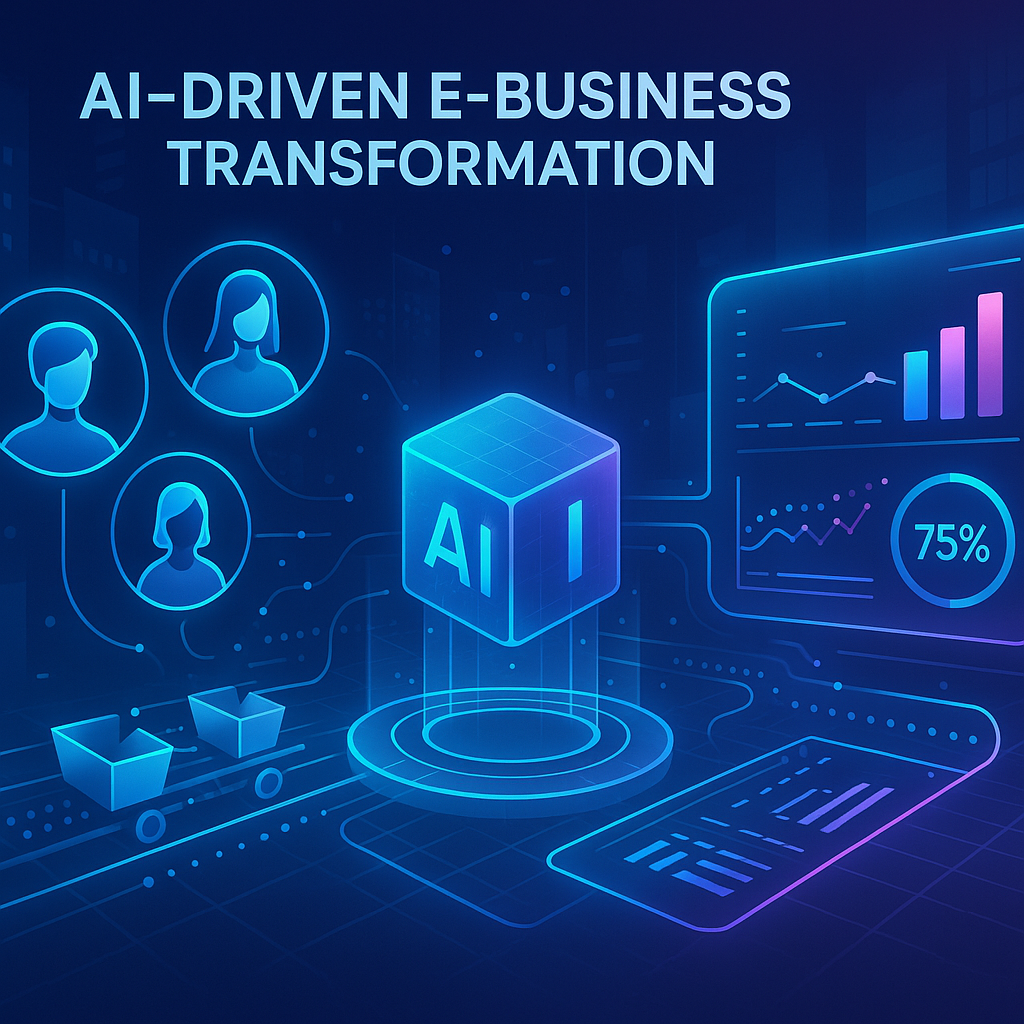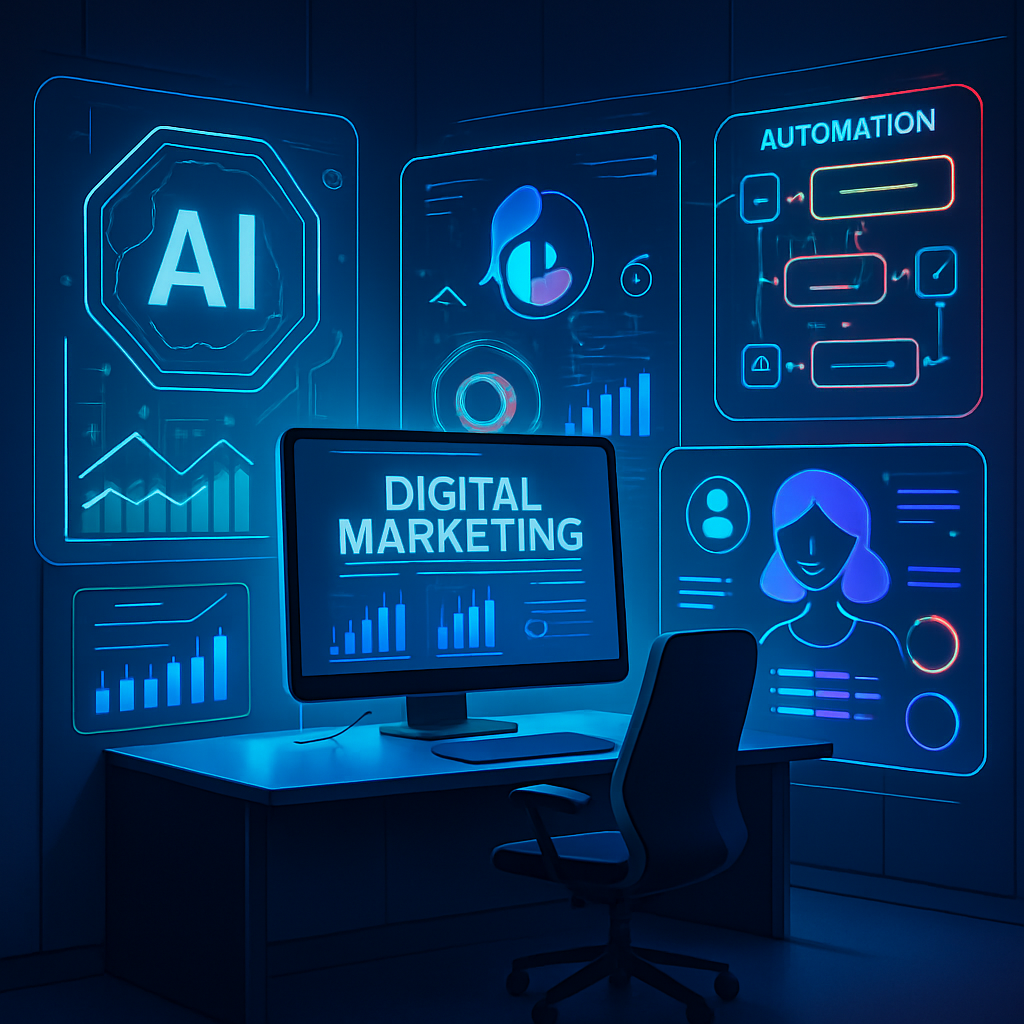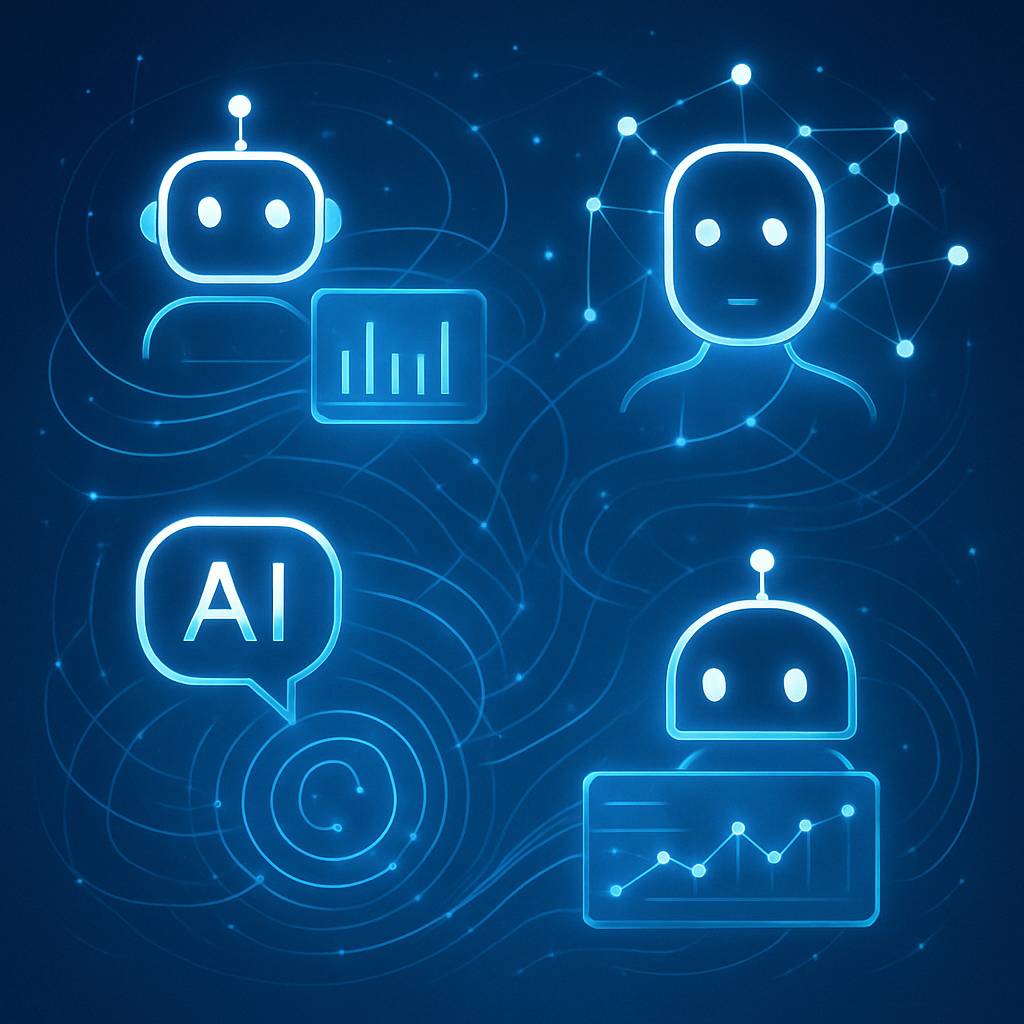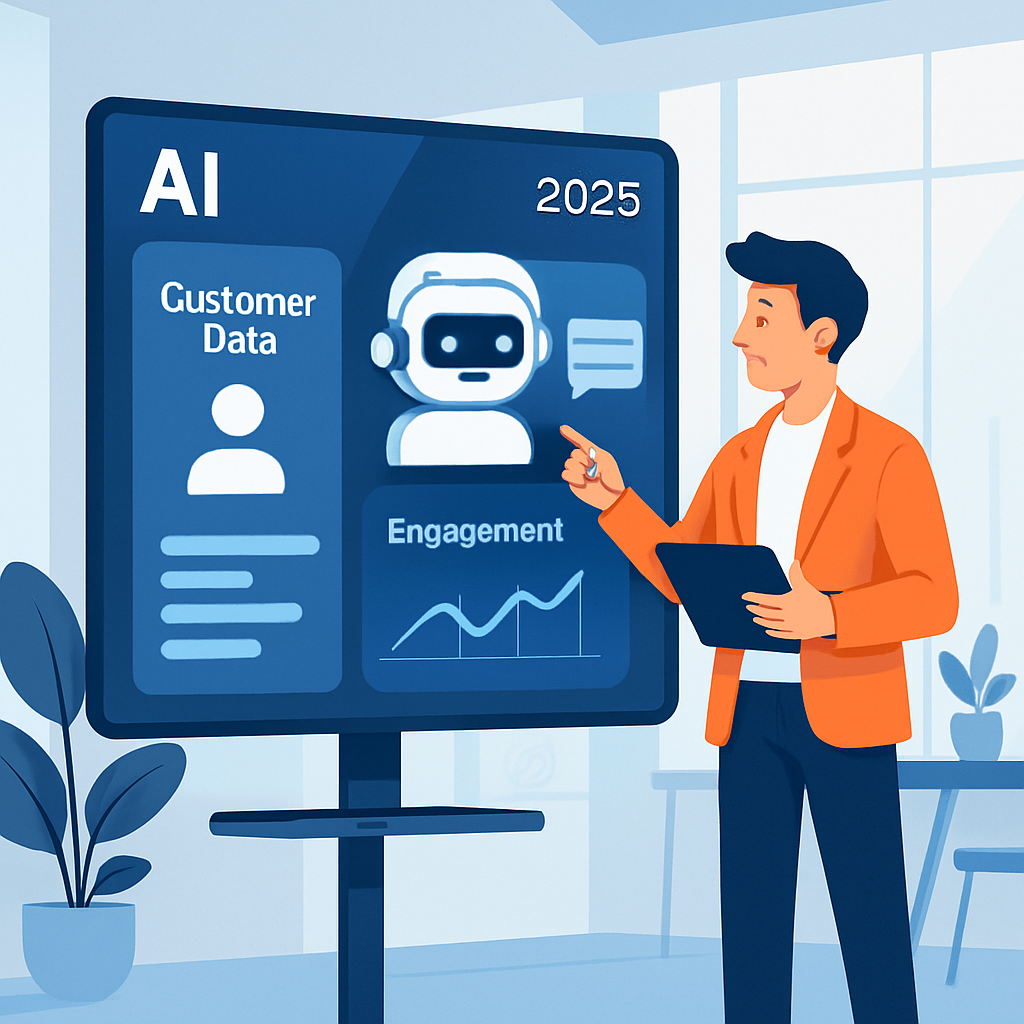
How AI Is Transforming Customer Experience, Supply Chains & Marketing
Introduction: The AI Revolution in E-Business
In mid-2025, artificial intelligence (AI) stands as a cornerstone in digital commerce, driving unprecedented transformation in e-business. Beyond automation, AI now intricately weaves into customer interactions, supply networks, and marketing campaigns, creating smarter, more responsive, and deeply personalized experiences. This shift marks a dramatic evolution from generic digital strategies to sophisticated, AI-powered business ecosystems.
Enhancing Customer Experience with AI
Conversational AI and Intelligent Support
Modern customers expect instant, personalized responses around the clock. AI-powered chatbots and virtual assistants have evolved to understand complex queries, detect emotions, and anticipate needs, offering tailored solutions without human delay. For example, some online retailers now deploy AI that proactively assists shoppers by analyzing browsing behaviors to suggest relevant products or by seamlessly handling after-sales support queries with natural language understanding.
Predictive Personalization and Dynamic Journeys
AI algorithms analyze vast datasets—from purchase history to social media sentiment—to map unique customer profiles. These insights power dynamic journey mapping, where websites and apps transform in real-time to reflect individual preferences. This hyper-personalization boosts engagement and conversions by making each digital interaction feel custom-crafted, thereby deepening brand loyalty.
Optimizing Supply Chain Management through AI
Real-Time Data Integration and Demand Forecasting
Supply chains in 2025 harness AI models that ingest and process real-time data streams including market trends, geopolitical developments, weather conditions, and even social media chatter. These inputs improve demand forecasting accuracy, allowing businesses to proactively adjust inventory and production schedules, reducing waste and enhancing fulfillment speed.
Autonomous Logistics and Intelligent Routing
AI-powered autonomous vehicles and drones are increasingly commonplace in warehousing and last-mile delivery, enhancing efficiency and lowering operational costs. Alongside this, advanced route optimization algorithms continually recalculate logistics pathways, balancing cost, speed, and sustainability goals in real-time. For instance, leading e-businesses deploy AI systems that automatically shift between transport modes or reroute shipments to mitigate disruptions.
Revolutionizing Personalized Marketing
Machine Learning for Segmentation and Message Optimization
AI enables marketers to move beyond static demographic profiles, using machine learning to uncover nuanced segments based on behavioral patterns and predicted future actions. This allows campaigns to deliver tailored messages that resonate deeply with target audiences. Dynamic creative optimization further adapts advertising content based on real-time engagement metrics, maximizing relevance and impact.
AI-Driven Content Creation and Influencer Matching
Automated content generation tools use AI to craft marketing copy, social media posts, and even video scripts aligned with brand voice and audience preferences. Additionally, AI platforms analyze influencer audiences and engagement to recommend ideal brand partnerships, ensuring authentic, data-driven collaborations that amplify reach and credibility.
Innovative Use Cases Illustrating AI Impact
Case Study: AI-Powered Virtual Try-Ons
A global fashion e-commerce platform integrated AI-based augmented reality allowing shoppers to virtually try on clothing using their smartphone cameras. This reduces return rates significantly by helping customers make more informed choices and enhances the online shopping experience.
Case Study: Smart Warehouse Automation
A multinational electronics retailer implemented AI-driven robotics for stock picking and real-time inventory updates. The result was a 40% reduction in order processing time and improved accuracy, evidencing how AI reshapes warehousing operations.
Case Study: Predictive Email Marketing
An online fitness equipment seller uses AI to analyze customer lifecycle and engagement data, triggering personalized email sequences that predict when a customer might be ready to purchase accessories or upgrades, increasing email-driven revenue by 25%.
Conclusion: The Future Trajectory of AI in E-Business
Artificial intelligence has transcended early hype to become an integral element of e-business strategy. By enriching customer experience, refining supply chains, and personalizing marketing efforts, AI not only drives efficiency but also fosters meaningful customer relationships and agility against market changes. Looking forward, the integration of AI with emerging technologies—such as edge computing and advanced human-computer interaction—promises even more immersive and intelligent commerce ecosystems, heralding a new era for e-business innovation.







